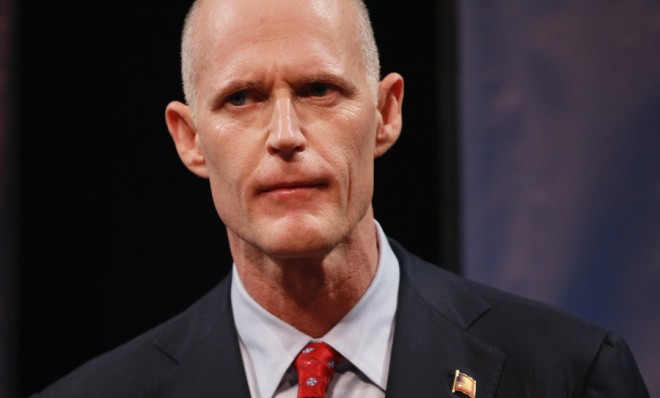Florida is already making it harder to vote, thanks to the Supreme Court
Florida and other states are moving ahead with voting laws that critics say target minorities


A free daily email with the biggest news stories of the day – and the best features from TheWeek.com
You are now subscribed
Your newsletter sign-up was successful
In June, the Supreme Court struck down a central piece of the Voting Rights Act, a move that Democrats warned would lead to a resurgence of restrictive, state-level voting laws.
And indeed, since that ruling, a handful of Republican-led states have already renewed such efforts.
As a quick refresher, the court nixed Section 4 of the Voting Rights Act, which established a formula to determine which jurisdictions with a history of voting discrimination had to get "preclearance" from the Department of Justice before revising their voting laws. The DOJ still has that preclearance power, but without Section 4, that power is largely toothless.
The Week
Escape your echo chamber. Get the facts behind the news, plus analysis from multiple perspectives.

Sign up for The Week's Free Newsletters
From our morning news briefing to a weekly Good News Newsletter, get the best of The Week delivered directly to your inbox.
From our morning news briefing to a weekly Good News Newsletter, get the best of The Week delivered directly to your inbox.
In response, Florida Gov. Rick Scott (R) this week asked state officials to resume scrubbing "noncitizens" from the state's voting rolls. Scott launched that effort before the 2012 election, but his plan was held up by legal challenges from critics who claimed it was a blatantly partisan attempt to purge poor and minority voters, who overwhelmingly vote Democratic.
"Governor Scott seemingly is bent on suppressing the vote in Florida, with his latest move coming as an unfortunate result of the recent Supreme Court decision that gutted the Voting Rights Act," Florida Sen. Bill Nelson (D) said.
Scott himself cited the court's decision in ordering that the voting roll review continue, saying it "has allowed our secretary of state to start working with our supervisor of elections to make sure our sacred right to vote is not diluted."
Florida is not alone.
A free daily email with the biggest news stories of the day – and the best features from TheWeek.com
In 2011, Texas approved one of the strictest voter ID laws in the nation, which forced residents to show official proof of U.S. and Texas residency to obtain a state-issued voter ID. Critics said that put an onerous burden on poor and minority voters who did not have and could not afford the prerequisite identification. The DOJ, using its preclearance power, blocked it from going into effect.
On the same day the Supreme Court handed down its ruling, Texas Attorney General Greg Abbott declared, "The State's voter ID law will take effect immediately."
Within one day of the ruling, five of the nine states subject to preclearance, including Texas, announced they would be moving ahead with their voter ID laws. Those included Mississippi and Alabama, both of which passed controversial photo ID laws in recent years, but had been waiting on federal preclearance to enact them.
In North Carolina, the legislature responded to the ruling by passing a bill similar to the one in Texas, but with added provisions that, among other things, would eliminate same-day voter registration and end a program that helps high schoolers register to vote when they turn 18. Gov. Pat McCrory (R) has said he will sign the bill.
"I've never seen a bill like North Carolina that makes it harder to register and vote — it's very brazen," Richard Hasen, an expert in election law at the University of California, told The Atlantic.
Individual municipalities, unburdened by Section 4, are now also expected to move forward with their own new laws.
The DOJ has asked a federal court to let it keep overseeing Texas' voting laws, and has threatened to step in elsewhere as well. Yet Congress would likely need to update the Voting Rights Act for the DOJ to prevent discrimination in election laws nationwide.
"Our country has changed," Chief Justice John Roberts wrote in the majority opinion to strike down Section 4. But the celerity with which states have moved to restrict voting suggests that the country may not have changed enough.
Jon Terbush is an associate editor at TheWeek.com covering politics, sports, and other things he finds interesting. He has previously written for Talking Points Memo, Raw Story, and Business Insider.
